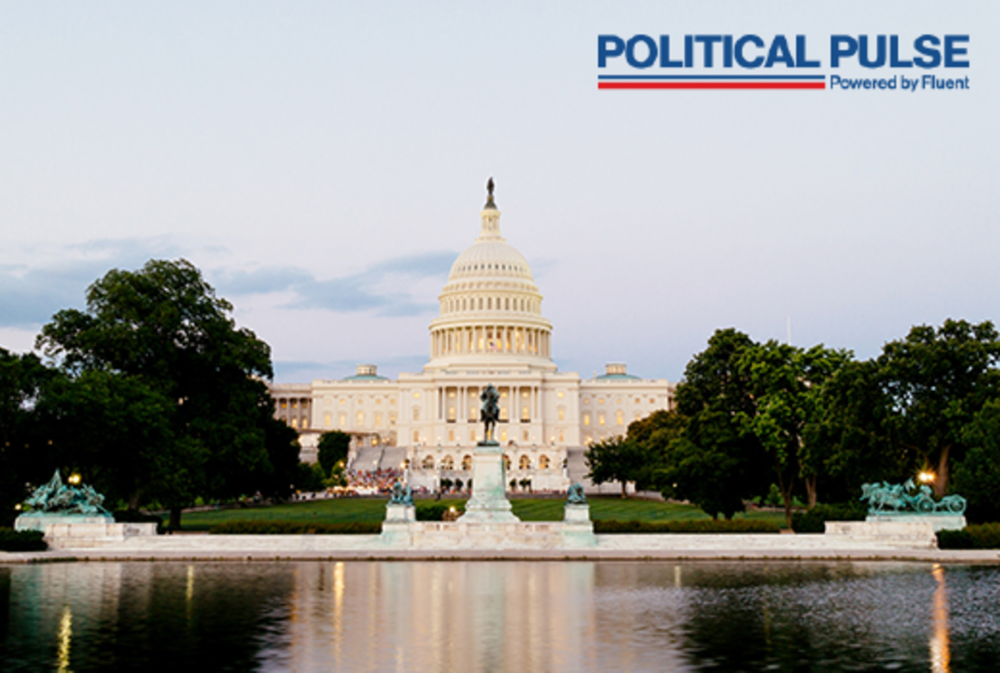Fluent’s completed polling of omnichannel marketing found Hillary Clinton and Donald Trump consistently almost equal on ad recollection, despite the disparity in spending. Even more surprisingly, more people thought they saw Clinton on TV news versus Trump.
Fluent had been tracking consumer interactions with each candidate’s advertising and news appearances since the general election began in earnest around May.
The prevailing wisdom—mostly backed by hard facts—was that Clinton grossly outspent Trump, but that Trump benefited from a massive amount of earned media on television, with the media even covering a press conference for his new hotel.
Despite this, respondents said that they saw Clinton on TV news and other media (print and online) more often than Trump throughout most of the analyzed time period. In the final week, 71% of people said they saw Clinton-related TV news versus 66% that claimed they saw Trump-related news.
“It might be the echo chamber effect, like the criticism that has been lobbed on Facebook. People gravitate towards consuming news about what they want to read about. Maybe Democrats reading more about Hillary and Republicans read more about Trump,” said Fluent CMO Jordan Cohen.
The closeness in ad recollection despite the disparity in spending was another surprise.
“The big takeaway was that Trump was able to keep it close on the ad front despite not spending at all,” Cohen said. “Almost every week, Hillary still just barely edged him out even though she was spending two-to-four times more than he did.”
One explanation could be that Clinton’s ads—and much of her rhetoric—focused on Trump’s lack of qualifications. So even when people saw Clinton ads, Trump was mentioned.
When asked if he felt people could distinguish between ads and media, Cohen said it could be a factor.
“Almost 50% of Americans said they saw ads from Trump when it was widely reported that he wasn’t running anything nationally,” Cohen said.
Fluent also tracked which issues the respondents felt were most dangerous for each candidate.
“The big takeaway from the data is that the email scandal was the biggest and most successful attack factor,” Cohen said. “It’s the one that gained the most momentum from May to October—even considering all of the crazy stuff Trump said. Nothing gained more steam as an attack than Hillary’s email scandal.”
Trump made the Clinton email issue his primary focus, even though he seemingly had a fresh scandal every week. Cohen suspects Democrats and Republicans alike were probably reading a lot of the email scandal, further explaining why Clinton had such high—in this case, negative—recollection in the media.
Post election, the polling, publishing, and social media industries have looked inward to understand what happened.
The national polls were mostly close—Clinton will win the popular vote—but Trump won the swing states that many expected Clinton to win, garnering him the presidency.
Cohen said the company still believes its methodology and science behind the polls and is bullish on polling’s ability to take the temperature of the nation.
“I stand behind surveying, and I think it’s great that people are being analytical about [how to improve it] now,” Cohen said.
But he expects that there will be some polling done in the short term to better understand how people are thinking—e.g. polling perhaps to reset the expected breakdowns of people’s opinions that is so crucial to weighting.
He also does not believe that a lot of people were being deceptive about how they were going to vote when polled in this election season.
“You have to be cognitively disciplined to deceive a pollster (and motivated)—because who cares” who you picked? Cohen said.








